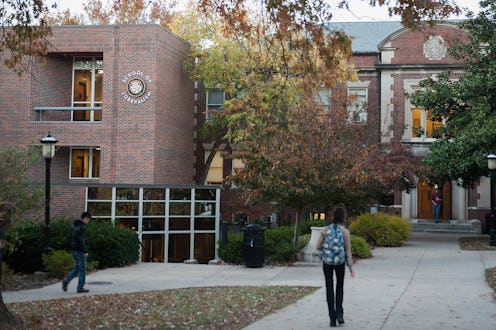News
Many Colleges Have Seen Racism On Yik Yak
The University of Missouri has been contending with racist threats directed at students and staff over the social media app Yik Yak. Yik Yak users are completely anonymous, and their posts are only visible to people within 10 miles. The app quickly gained popularity among college students after it launched in 2013, allowing them to anonymously post messages visible to other users in the area. Unfortunately, due to its anonymous nature, there have been several instances of intense harassment involving the app, primarily on college campuses. Several campuses have seen racist threats come through Yik Yak, and all of them have caused trauma and outrage among students of color.
Racist comments on Yik Yak seem to end up involving nearly everyone on a campus on some level. Faculty, staff, and especially students are all having to learn how to grapple with this problem, given that Yik Yak is anonymous, and the threats are often violent and extremely hateful. Here are some other instances of racist harassment directed at college students via this app.
Colgate University
In 2014, Colgate University in upstate New York saw extreme harassment directed toward students of color on Yik Yak. The repeated threatening messages moved a group of concerned students to band together and create the Colgate University Association of Critical Collegians (ACC), who organize protests and sit-ins on campus, as well as provide support for one another. Eventually, the school released a statement to the student body which members of the ACC called "vague."
The podcast Reply All produced a story on the problems students of color faced at the school, where ACC leader and Melissa Melendez was allegedly told by the dean that one option would be for the targeted students to finish the year off-campus if they felt uncomfortable or unsafe because of threats. The other options were for the dean to stay at the house where ACC members were staying or to have campus safety look after them. A school representative said that the intent of the options was to treat the concerns as seriously as possible. The school also contacted local and state police in an attempt to protect students, and tried to see if a grand jury could oblige Yik Yak to reveal the names of abusive users. Colgate was ultimately unable to uncover the names of the users.
American University
Last month, American University in Washington D.C. saw bigotry on Yik Yak. Students became so exasperated and angry about the problem that they decided to make the messages public. One of the messages that really crossed the line was: "First you bring Ebola here, then you start riots and destroy our cities ... Go back to Africa." Students responded by creating a group called TheDarkeningAU to give greater voice to their complaints about what they were seeing. Eventually, the president of the school responded with a letter promising that American University was developing a plan to confront these issues.
Clemson University
Students at Clemson University spoke out against racist, misogynistic, and homophobic comments that were pervading Yik Yak on their campus, and petitioned the University to ban Yik Yak. Clemson reportedly considered banning the app, but ultimately decided to continue to allow students to use it, despite protests.
The College Of Idaho
This past May, the Student Senate at the College of Idaho moved to ban Yik Yak from their campus after multiple students had been threatened with racist and/or misogynistic messages. They contended that the app was threatening the sense of safety and community on campus, and should no longer be allowed. Yik Yak denied the school's request for a "geo-fence" to be placed around the campus. After this, the school blocked the app from its WiFi.
Penn State University
In March, Penn State saw general threats of violence (one Yik Yak user threatened to kill everyone at the school), as well as messages that were racist, sexist, and homophobic. In Penn State's case, Yik Yak worked with police to determine the account user behind a shooting threat, and the local police have continued to monitor activity on the app at the school. Penn State has also provided information about responsible social media use to students.
